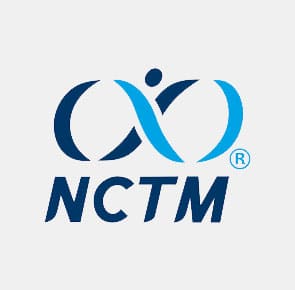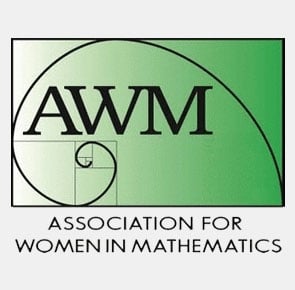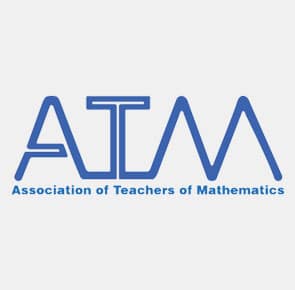Get Matched With Math Education Programs
What Does a Career in Math Education Entail?
Mathematics is a tool for solving problems. It’s considered a 'pure' science by those who practice it and many people that study mathematics stay within the field as researchers and math teachers. Mathematics develops precision and attention to processes. In a sense, it's not so much a matter of numbers as it is the ability to create and work with ideas. Mathematics is the ability to manipulate precise ideas in simple steps that create complex patterns.
Pairing a focus in mathematics with a degree in an education program gives you the ability to teach elementary, middle, and high school math. If you go on to complete a master’s or higher degree programs in mathematics with a focus on teaching, you can eventually become a professor at a college or university. Depending on your focus, you can teach calculus, mathematics for scientists, algorithms, probability, and statistics, as well as much more.

Components of A Successful Career In Math Education
Mathematics requires intensive study, and for related fields like economics, engineering, and computer science it requires that you complete an advanced education program and receive extra training. Teaching also has its own skillset. These skills will give you an edge:
-
Critical Thinking
Mathematics careers involve insights; one must be able to see beneath the surface appearance of things and derive principles. -
Analytical Thinking
Mathematics requires a strong ability to determine the logic or lack of logic of any proposition. -
Quantitative Reasoning
Many math functions require in-depth analysis and independence. One must be able to rely upon principles and theorems and work without direction and oversight. -
Communication Ability
This is an essential component of a successful teaching career. Whether researching, teaching middle school or secondary education, or participating in a related field, being able to help students learn complex concepts requires high levels of communications skills. -
Teamwork and Time Management
These are essential elements of mathematics education careers. When working on projects or in other team-based efforts, time and performance have critical linkages.
Compare Popular Online Math Education Programs
How to Become a Math Teacher
- Decide whether to begin at the associate or bachelor’s degree level
- Research schools that offer a state-approved teaching math major
- Decide whether to utilize online, on-campus, or hybrid attendance
- Apply to schools
- Apply for financial aid if needed
Typical Math Education Degree Requirements

An associate degree in education/teaching typically requires 60 or more semester credit hours. Most students can complete the degree in two years of full-time attendance. The curriculum requires general education and a core of teaching classes. At the associate level, there won’t be much specialization in math, as this degree will not allow students to become full math teachers, neither high school teachers nor middle school teachers or any other kind. With the associate degree you can start a job as a teaching assistant, but you will need a bachelor’s to teach your own classes.
The online bachelor’s degree in education is a four-year degree that requires about 120 hours of coursework. In the teaching field, states require licenses for elementary and secondary teachers. Teaching curricula often includes supervised training in classroom settings.
The online master’s degree In mathematics education is an entry-level degree for teaching on the post-secondary level. Many college faculty positions require PhDs, but the master’s degree is the entry level.
Typical Math Education Certifications Needed
Once a student achieves a Bachelor of Science in math education, they must meet the state requirement for teacher certification. Most states require an exam and passing score. Teacher applicants must apply for a license and undergo a background examination. States must approve each application for a license. In most states, mathematics majors can qualify for teaching positions by completing a teacher preparation training course
Find Your Online Math Education Program
Academic Standards for a Math Education Degree
The Department of Education’s regional accreditation agencies approve teaching institutions. The Council for the Accreditation of Educator Preparation (CAEP) also sets standards for teaching degrees including mathematics education. Students should look for accreditation by the regional accreditation agency approved by the DOE. Students should verify any other accreditation for approval by the DOE or the Council on Higher Education.
Exam/Experience Needed for a Math Education Degree

Online Math Teacher Degree Options & Courses
The degree options for math education include the associate, bachelor’s, and master’s degree. The bachelor’s degree is the standard entry-level degree for the mathematics education profession and nearly all the related teaching positions.The associate degree can open doors to math teaching in the form of para-teaching (teacher assistant) or other particular types of instructor status, such as teaching English as a second language (TOESL). These may be part of a growing trend of special teaching situations that grow as charter and private education alternatives spread. The associate degree can enable tutoring and other types of informal teaching as well, but if you want to teach Math specifically, you will probably need a bachelor's.
The associate degree can be a stepping stone for a bachelor’s degree. The bachelor of science in math education opens many opportunities in the math teaching profession including all levels between K-12, pre-school, and special needs education. A Bachelor of Science degree prepares students for trial or student teaching and the state-sponsored teacher licensing exams.
A master’s degree is the entry-level for higher education, research, and leadership roles. The master’s in math education opens up teaching in related fields such as computer science, instructional technology, and cyber security, as these occupations require an extensive knowledge base in mathematics. A master’s degree is a stepping stone for doctoral studies and the entry-level degree for college faculty positions.
Online Associate Degree
An associate degree in math education can be an excellent stepping stone to a teaching career. By gaining classroom experience and mentoring from licensed teachers, an associate degree can advance a career in math education. Courses cover some focus areas like special education, early childhood to kindergarten education, middle grades teaching, and secondary education.
Example Coursework for Associate Degree in Mathematics Education:
- Math for Teachers
- English Composition
- Public Speaking
- Introduction to Teaching
- Child Development
- History
- Natural Sciences
Online Bachelor’s Degree
Students must complete coursework and spend up to one semester practice teaching in a supervised classroom setting. The curriculum must be state approved to qualify students to sit for the state teaching exam and apply for licensure.
Example Coursework for Online Bachelor’s Degree in Mathematics Education:
- Teaching Geometry, Algebra, Trigonometry, and Calculus
- Principles of Classroom Management
- Pedagogical Theories and Practical Teaching
- Math and Technology
- Mathematical Modeling
- Discrete Mathematics
Concentrations for Online Bachelor’s Degrees in Mathematics Education
Special Education, Cultural Diversity, and Probability and Statistics
Online Master’s Degree
The master’s degree goes beyond teaching grades K-12. The MS can propel a career in college-level education, education administration, and advanced education research. Education is more than public and private schools; it is also the material that corporations and businesses need to raise the performance of its workforce and meet the challenge of global markets and technological innovation. A masters degree can net you positions inside or outside of an education institution.
Example Coursework for Master’s Degree in Mathematics Education:
- Computational Linear Algebra
- Effective Teaching in Secondary Schools
- Knowing and Learning in Mathematics and Science
- Middle School Mathematics Methods
- Secondary School Mathematics Methods and Assessment
- Secondary School Mathematics Practicum
The final semester can be a capstone project applying the course of study to real-world problems, issues, and situations.
Concentrations for Online Master’s Degree in Mathematics Education
Educational Policy Leadership, Teaching Literacy and Language, and Teaching Students with Special Needs.
Earning Potential for Math Education Degree Fields and Occupations
Math Education Fields of Study
- Cryptography blends knowledge of mathematics with computer science and computer engineering. They use expertise in algorithms and computer language to encrypt and protect digital information from intrusions and attacks.
- Mathematics is the study of number systems and computation. It includes traditional elements such as algebra, geometry, calculus, and advanced types of equations and formulas.
- Economics is the broad field of study that analyzes information about the exchange of goods and services within a national or international economic system.
- Actuary Science studies the relationship between risk and events on a statistical scale. Actuary science is the underpinning of modern insurance and risk assessment.
- Financial Planning uses analysis of available investment vehicles, funds, and products to design strategies to promote personal financial security and business profitability.
- Statistics is the study of probability theory in mathematics. Statistics does not involve the methods for collection but focus on the analysis and application of mathematical models.
- Operations Research uses models from other areas of mathematics to analyze information and support organizational decision-making.
Field of Study Average Salary by Degree Level
| Field of Study | Associate’s Salary | Bachelor’s Salary | Master’s Salary |
|---|---|---|---|
| Cryptography | $53,500 | $93,500 | $105,952 |
| Mathematics | $61,000 | $73,000 | $111,000 |
| Economist | $40,000 | $65,000 | $87,500 |
| Actuary | N/A | $86,000 | $97,000 |
| Financial planner | N/A | $60,483 | $73,000 |
| Statistician | N/A | $54,500 | $78,000 |
| Operations Research | N/A | $62,400 | $92,000 |
Math Education Salaries by Occupation
Salary and pay can vary within the discipline of mathematics education. Mathematics supports many other related occupations. Some occupations have high demand, particularly those that relate to information technology like computer science, computer engineering, cryptology, and cybersecurity. Within each mathematics occupation, the salaries and responsibilities increase with the levels of educational attainment.
Math Education Occupations
Crypto-Analysts work with sensitive and encrypted data across the Internet and other transmission systems to secure data against abuse and compromising attacks. Analysts study systems and develop remedies and strategies for data protection.
Statisticians are the mathematics professionals that gather and analyze all types of numerical data. Their expertise interprets data and helps determine its usefulness and reliability.
Mathematicians use in-depth knowledge of mathematics and computational science to solve problems, build systems, and perform advanced research.
Economists advise businesses and governments on various aspects of the economy, trends, and reported information. Topics include taxes, revenues, budgeting, international trade, and deficits.
Actuaries use statistical analysis of official data to advise on insurance risks and casualty situations.
Financial Planners typically work for banks or investment companies. They advise on making money by suggesting or making investments and investment strategies for customers.
Find Online Math Education Schools
Investment Analysts perform research on funds, stocks, and other investments to provide advice. They research and analyze investment products and opportunities.
Operations Research Analysts complete and analyze operations research for their organizations. These highly trained analysts examine operations-related trends and use information to assess organizational processes. Analysts must shape and present informative reports to leadership and all relevant parties.
Annual Salary Range by Occupation
| Occupations | Entry Level | Mid-Career | Late Career |
|---|---|---|---|
| Crypto-Analyst | - | - | - |
| Mathematician | $52,300 | $96,400 | $99,200 |
| Economist | $58,600 | $94,800 | $116,000 |
| Actuary | $61,800 | $106,500 | $150,500 |
| Financial planner | $49,900 | $71,000 | $103,000 |
| Investment analyst | $57,100 | $79,800 | $102,300 |
| Statistician | $65,900 | $84,300 | $109,400 |
| Operations research analyst | $60,100 | $89,700 | $109,200 |
Important Questions to Ask (FAQ)
How long does it take to earn a Math Education bachelor's degree online?

How much does a Math Education bachelor’s degree cost?
The costs of a bachelor’s degree primarily consist of tuition, room and board, fees, and books for a four-year course of study. The below-listed items offer a range of total costs by type of school.
- Public schools’ in-state rates and total costs range is about $90,000.
- Public schools’ out-of-state rates and total costs range is about $140,000.
- Private school tuition and total costs range is about $190,000.
Does the school have the major(s) you’re considering?
The choice of major should work with the student’s job objectives and career goals. The major should align with the student’s longer-term intentions as the major is the beginning point of your career. The major core may consist of four to six courses. The availability of related electives and the students preferred specialization is also important. The course curriculum and the experience of the faculty are items that each student should carefully review when selecting a school for mathematics education.
How many students graduate “on time,” in four years?
Each school has a different experience with graduation rates, and the Department of Education offers the College Scorecard website to provide details for each school. Over the national average of all majors and all schools, some provide a baseline on graduation trends.
In public four-year schools, about 35% of students graduate on time. At the six-year mark, about 65% achieve graduation requirements. Similarly, in private schools, about 53% of the students graduate on time. At the six-year mark, the completion rate is about 68%.
What kind of accreditation does the online program hold? How is it regarded in the field?

Software, Technology & Skills Needed
Teachers do not require a particular set of software, technology, or other skills. However, in today’s automated and computerized workplaces, any form of teaching can involve using computers and devices for routine actions such as research, communications, data retrieval, and information analysis. There are also all kinds of applications for use by teachers, but this is an option, not a requirement.
Math Education Scholarships
-
EPP/MSI Undergraduate Scholarship Program
Amount: $45,000 (10 Awards)
Deadline: January 31
The goal of this scholarship program is to increase the levels of participation in STEM and activities relevant to the NOAA missions. The program awards scholarships and internships to outstanding students studying at minority-serving institutions (MSIs). Eligible students have completed their second year, attend a minority-serving institution, and have majors that could support the ocean, atmosphere, or environmental disciplines. Recipients must be US citizens or residents and maintain a 3.2 GPA on a 4.0 scale.
-
Ernest F. Hollings Undergraduate Scholarship
Amount: $9,500 (100 Awards)
Deadline: January 31
The Hollings program provides funds up to $9,500 per year for academic costs for up to two years of study. The program supports current research and provides internships. The goal of the program is to increase the supply of scholars to support NOAA missions and to increase the numbers of educators in these fields. This program offers students education and hands-on experience in their fields. Mathematics is an essential element of all of NOAA missions and research.
-
Gladys Carol Scholarship
Amount: $5,000
Deadline: March 30
Eligible students for the Gladys Carol Scholarship Program include high school students who are seniors, graduates, and current undergraduate level students. Applicants must be United States citizens or permanent residents pursuing a full-time STEM (science, technology, engineering, or math) degree. Students must attend an accredited, non-profit public or private four-year college or university in the United States. The award can go to students with a 3.75 GPA or better. Students can renew the scholarship so long as they continue to meet the scholarship requirements.
Search Programs Offering Math Education Majors
-
Fontana Transport Inc. Scholars Program
Amount: $5,000
Deadline: March 14
The Fontana Transport Inc. Scholars Program is a scholarship program to increase the number of under-represented students in the STEM study areas including mathematics. The awards are open to underrepresented, low-income and first-generation college-bound students. Eligible students must pursue an undergraduate degree on a full-time basis. The eligible study categories include transportation, mathematics, science, engineering, architecture, environmental design, pre-med, psychology, Spanish, and literature. Awards will go to students with a minimum 3.5 GPA and proof of attending college beginning in the fall semester. Applicants do not have to be U.S. citizens. Recommendations by a faculty member are optional but highly suggested.
Professional Organizations
- NCTM
- AWM
- ATM
- SIAM
- BBA

NCTM
National Council of Teachers of Mathematics
This national organization is an advocacy, research, and educational organization. The group promotes issues of concern to teachers at all levels of mathematics instruction. The NCTM publishes magazines and journals that provide a platform for discussion and exchange of ideas for improving teaching techniques and student learning. Students can join this organization, and for future teachers, it can provide valuable information on trends and developments.

AWM
Association of Women in Mathematics
https://sites.google.com/site/awmmath/awm
The organization encourages women and girls to participate in mathematics study, mathematical sciences, and related occupations. The goal is to overcome the historical under-representation of women in mathematics. Students can enjoy the educational resources and opportunities to learn more about efforts to increase women participation in all levels of the profession including leadership roles.

ATM
Association of Teachers of Mathematics
https://www.atm.org.uk/ATM-aims-principles
This organization works independently and in cooperation with other mathematics associations such as the joint annual conference with the Mathematics Association. The organization promotes teaching and learning of mathematics in the US. It focuses on the ways in which we teach math and the ways in which we can learn. The association also promotes best practices and sharing of effective techniques and methods. At all levels of education, the association promotes discussion, research, and efforts for improvement.

SIAM
Society for Industrial and Applied Mathematics
The SIAM promotes study and careers in applied mathematics and computational science. The society is an information and education resource for students. It has sections dedicated to the many fields of mathematics including related fields like life sciences, earth studies, and materials science. The Society publishes scholarly journals that provide a platform for increasing awareness, promoting collaboration, and inspiring further research and innovation.

BBA
The Benjamin Banneker Association
The Benjamin Banneker Association partners with the National Council of Teachers of mathematics. It is a non-profit organization dedicated to mathematics education and advocacy for mathematics education. The goal is to increase participation of African American students in mathematics and raise the levels of instruction available to this population on a national basis.
Choosing an Accredited Online College
Accreditation is an essential element of the college or school selection. Accreditation adds value to a degree. Employers and educational institutions will accept credit hours and degrees from schools with strong accreditation. The best level of accreditation is regional institutional accreditation , and programmatic accreditation of the mathematics or education program.
Teaching schools can have special accreditation from a Department of Education-authorized accreditation agency. The Council on Higher Education recognizes the CAEP as the standard-setting agency for mathematics education.
Online vs. On-Campus vs. Hybrid
Students can design the type of school attendance they prefer based upon their financial and personal needs and preferences. Students can choose to attend traditional classes and lectures on-campus with other students. If they’d rather not attend in person they can instead choose to study online and complete the degree requirements over the Internet. Students can also mix the on-campus and online experience into a customized mix.
On-campus attendance is called synchronous learning. All the students in a class gather at the same time and place and take part in the class work with the teacher. On-campus attendance can require relocation or frequent travel to the campus. On-campus can interfere with a job, business, or other personal or family obligations and become a barrier to participation.
Online education provides access to college-level classes for students that choose to work at a job or business while attending college. Online education can save on expenses and students can complete degrees in about the same time as on-campus students. Many schools offer the same faculty for online and on-campus students as well.
The hybrid or mixed attendance can allow students to do some courses in person, while completing others online. This can be helpful for clinics and supervised teacher training in classroom settings.
Frequently Asked Questions
What is the difference between a Master of Arts, Master of Science, and Master of Education?
The master of science tends to focus on practical skills that teachers will use in the classroom. This is best for those who wish to teach at a college level or in another field. The master of arts, however, focuses heavily on research and theory. This might be useful for those who plan to work in administration, curriculum creation, or research in some way. The master of education can help you expand your opportunities both inside and outside the classroom. It has equal courses dedicated to actionable learning you can use in your classroom and leadership and research skills that you can take into a PhD if that is your next goal.
What is the difference between a master’s in mathematics and math education?
Those who study math with the goal of being a teacher will spend somewhat less time on higher-level mathematics and more time on pedantry and teaching methods. Of course, if you plan to teach math at the college level, you will need to understand the fields you will be teaching, but this is dependent upon your ultimate career goals. With this extra focus on teaching, you will likely not have time to take math-focused courses beyond those which are necessary, such as computation or computer science.
Do I need a double major to teach mathematics?
There are some programs which offer a specific degree in mathematics education. Other schools may require that you complete a double major in math and teacher education in order to gain the degree necessary to teach at an elementary or secondary level. This is highly dependent on the school you attend and the programs available. If you wish to teach math but don’t want the hassle of a dual major, you should specifically seek out programs which offer the mathematics education program you require.
Does the College Have Post-Graduate Job Placement Help & Assistance?
When selecting a school or program, students should pay close attention to post-graduation job placement and other employment assistance. University HQ considers job assistance to be an essential part of the educational experience. Career counseling and help with the first job can boost a student’s career at a critical time.
Some schools offer extensive programs that use a national network of employers, alumni, and affiliated organizations to produce job and career opportunities for their graduates. These resources add to the value of the degree and improve the quality of the learning experience.
Why You Need to Consider the Overall National Rankings of the College and the Effects on Your Career or Salary
Employers look at school and college rankings when deciding to interview and hire candidates. The rankings use factors of interest to employers such as the graduation rate, retention rate, and student experience information. Employers prefer to hire students from schools that select carefully, provide high-quality education, and guide their students to complete their courses of study successfully.
Rankings also consider the success rate of graduates, consider the number of on-time graduates, the rate of hires, and the level of income for recent graduates. The college rankings can be an excellent snapshot. They also take a long-term view of the quality of education. For example, rankings note the extent to which graduates go on to get higher degrees and PhDs.
